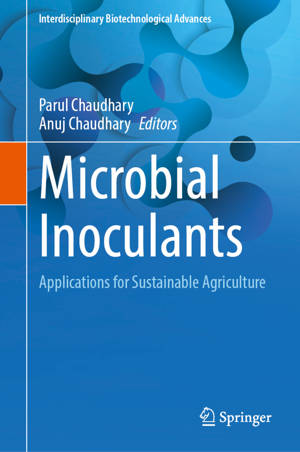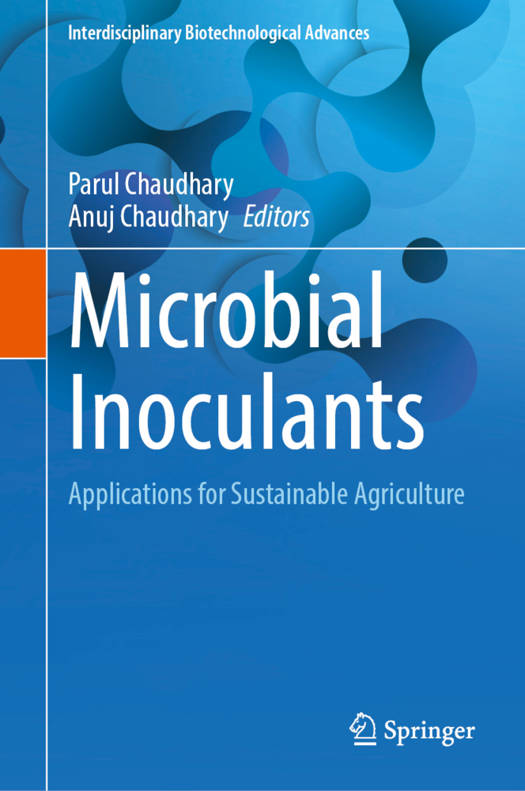
- Retrait gratuit dans votre magasin Club
- 7.000.000 titres dans notre catalogue
- Payer en toute sécurité
- Toujours un magasin près de chez vous
- Retrait gratuit dans votre magasin Club
- 7.000.0000 titres dans notre catalogue
- Payer en toute sécurité
- Toujours un magasin près de chez vous
Microbial Inoculants
Applications for Sustainable Agriculture
Description
This book discusses the role of microbes in agriculture for plant attributes, soil fertility, and bio-remediation, which aid in sustainable agriculture. Nowadays, due to increase in human population, it is essential to increase food productivity in the near future, but exhaustive non-sustainable agricultural practices such as the usage of agrochemicals threaten food security, the economy, and the environment globally. Soil deterioration is the most serious environmental threat to food production, resulting in poverty and hunger in developing countries. As a result, the global community has faced challenges regarding the development of ecologically sound, efficient, and long-term alternative options to meet rising food requirements. Therefore, to contribute to food security, the advancement of sustainable and innovative modern agriculture aimed at addressing environmental, economic, and social challenges connected with present intense non-sustainable agriculture practices is required. As a result, beneficial microbial inoculants will be widely used in the development of new strategies to increase sustainable food production. Bioinoculant application helps to provide nutrients that directly support soil health and sustainable food production. Hence, this book offers the role of microbial inoculants for better agronomical performance for sustainable advancement in agriculture and also pays attention to soil health improvement for extensive period benefits. The book will be highly recommended for agriculture microbiologists, agronomists, plant pathologists, and related areas.
Spécifications
Parties prenantes
- Editeur:
Contenu
- Nombre de pages :
- 435
- Langue:
- Anglais
- Collection :
Caractéristiques
- EAN:
- 9789819706327
- Date de parution :
- 14-04-24
- Format:
- Livre relié
- Format numérique:
- Genaaid
- Dimensions :
- 156 mm x 234 mm
- Poids :
- 807 g

Les avis
Nous publions uniquement les avis qui respectent les conditions requises. Consultez nos conditions pour les avis.





